What to Think When You Think of the world, Ukraine, & the Heart of Jesus in the Closing Days of Lent
When I meet a good friend for a walk through the streets of the Romanian city where liberation began, she tells me about where she was the day when the oppressive regime of Communism fell — and what ended up rising up in her, and keeps rising, especially now, in days like these.
It’s my third visit to Romania, my second to meet Elena, a Romanian believer who leads a Bible study, who’s involved with counselling at her church, whose kind young son went on a long park run with my son during my last visit to serve in Romania.
“I was 9,” Elena tells me.
Under Russian Sovietization after WWII and communism, life for working-class families was brutal, the hardships unending. The Communist Romanian government exported its produce and food to the world, while the Romanian people struggled with rations, with empty shelves, with a shortage of eggs and grain and meat.
This was 1989, not that long ago.
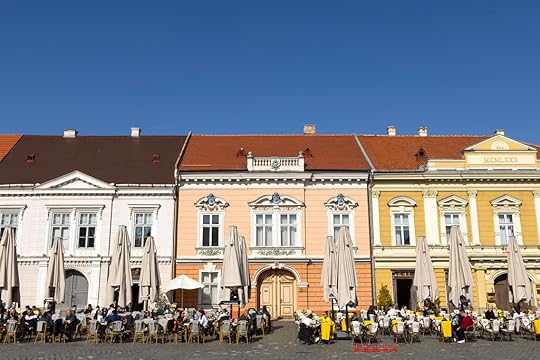

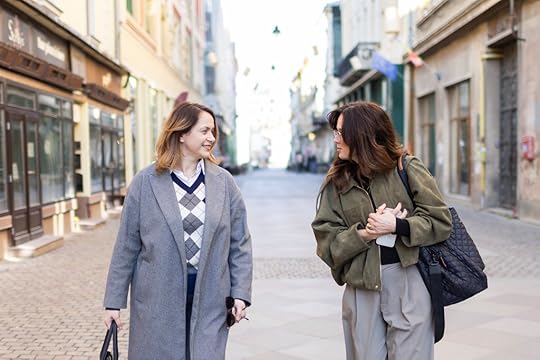

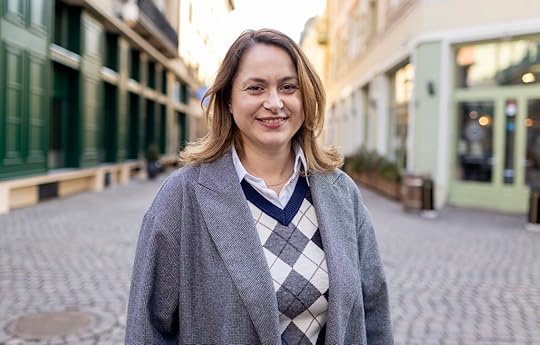
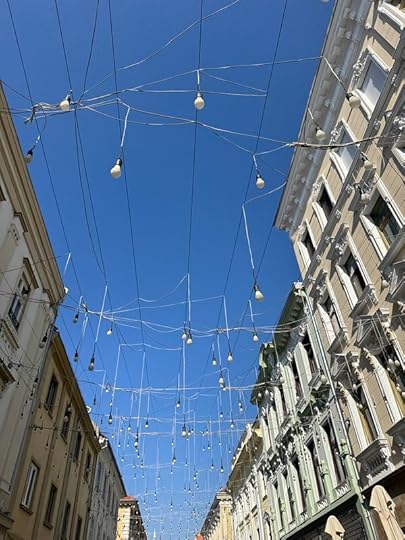
“There were cities where mothers, fathers, had to stand in lines since before three in the morning just to try get milk or bread,” Elena walks along the cobbled streets in central Romanian city of Timisoara in the warmth of early March sunlight.
“But it was more that you couldn’t speak freely, that you had to hide what you’re thinking.” People lived in fear of standing up, of speaking out.
“…When you truly follow the One who walked the Via Dolorosa to right wrongs, you’ll be the believer who stands in the streets, in the way of wrong, to not just be on the right side of history, but to rightly usher in more of the Kingdom of God.“
Elena and I walk from Union Square to Liberty Square in this city where the first protests against communism began in the days just before Christmas in December of 1989.
A faithful pastor had dared to speak up against the policies that were hurting working-class families.
The oppressive government had planned to deport Laszlo Tokes — but 30 to 40 of his congregants of the Reformed Church gathered at his home, on a side street of Timisoara, as a shield of prayer. The cross of Christ always loans courage to true disciples of Christ to stand for righteousness, like Christ, because of Christ.
However, Romania’s oppressive leader, Nicolae Ceausescu, pushed forward and ordered his administration to evict and deport Pastor Tokes. But neither the leader or the administration had anticipated how hundreds of those from the collective body of Christ, across denominational lines, would gather, lining the streets in front of Pastor Tokes’ residence, because when you truly follow the One who walked the Via Dolorosa to right wrongs, you’ll be the believer who stands in the streets, in the way of wrong, to not just be on the right side of history, but to rightly usher in more of the Kingdom of God.
Thousands of Christians poured into the streets to protect the pastor who dared to speak truth to power. Though the mayor of Timisoara instructed Pastor Tőkés to tell the thousands of gathered Christians to go home — Pastor Tőkés faithfully led the rising body of believers to pray the Lord’s Prayer together. Late under the winter night sky, the followers of Jesus prayed as one voice: “Deliver us from evil!”
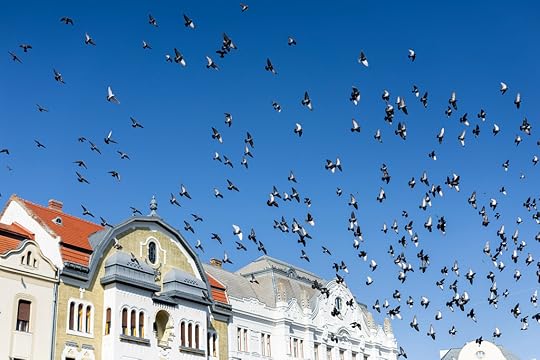

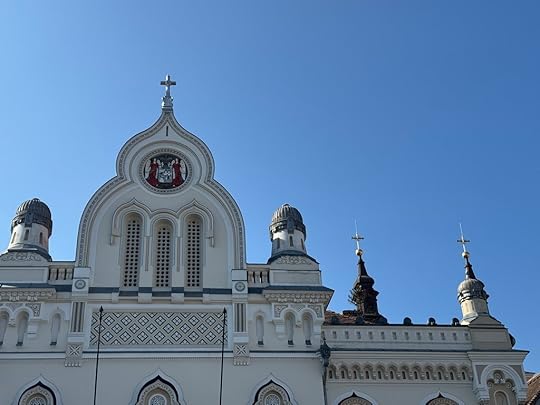

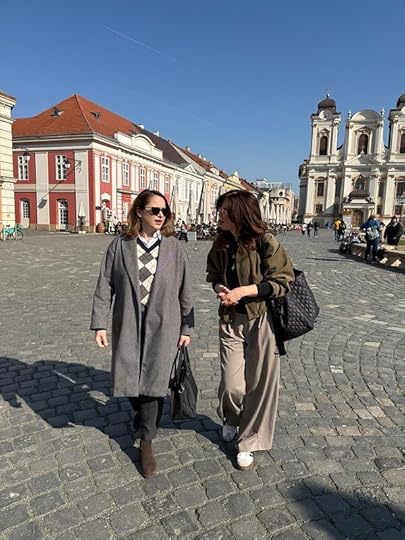

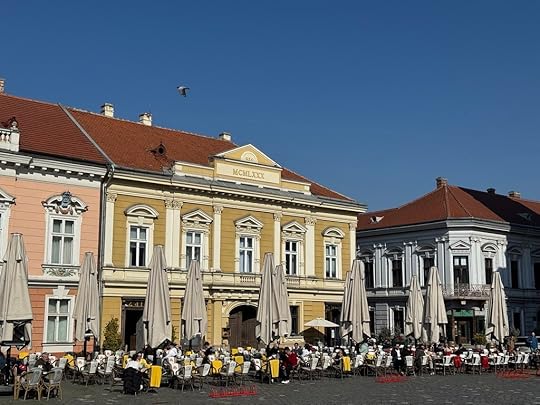
“That day, in a village south of Timisoara, I was hiding in the house with my Grandfather, away from where neighbors could see or hear us, to listen to the radio “Free Europe,” Elena’s walking next to me, through these historied streets of Timisoara, remembering. “Because people felt this is the moment that is shaking something in the Romanian regime… And the government, they were afraid of this…. and they wanted to scatter the people.”
Whenever we put ourselves in someone else’s shoes, we are walking closer to the heart of God.
Elena slows, her walking, her words.
“And first, shots were fired in the air— and after that they started to shoot the people.”
I turn to find Elena’s eyes.
“I was just a little girl, so when we heard what was going on from the radio, I was thinking about all those children, and I remember how I was very sad, thinking about all those children whose parents were shot and who had to hear all the guns and the shooting.”
Whenever we put ourselves in someone else’s shoes, we are walking closer to the heart of God.
And when we dismiss what it feels like to walk a mile in someone else’s shoes, can we actually claim to walk with God?
“I couldn’t, as a little girl, believe it was really happening. And my grandmother had come into the room where we were listening to the radio — and I remember, she tried to give me a candy she had saved for me. But I wouldn’t take it, I couldn’t eat it. Because all I was thinking about was how there were children who were suffering. They suffered because of bad news, because of the shooting, because of everything that was happening. How could I eat the candy?”
I stop in the street.
I try to read what Elena’s eyes are saying, the story she’s lived, and can still see glimpses of the nearly 9 year old girl, huddled close to the secret radio with her grandfather the day an oppressive regime shot praying parents down…who refused tasting a rare candy for herself, because she can imagine how the regime’s bullets struck down men and women who were parents, who had children just like her…. children who were now tasting unimaginable grief and loss.
“When you can feel compassion for even those who are far away, you are not far from the heart of God. “
When you can feel compassion for even those who are far away, you are not far from the heart of God.
Compassion tastes the salty tears that stream down another’s face.
Compassion is the very first virtue God uses to describe Himself the very first time He speaks of His own character: “Then the Lord came down in the cloud and stood there with him and proclaimed his name, the Lord. And he passed in front of Moses, proclaiming, “The Lord, the Lord, the compassionate and gracious God….” (Ex. 34:5).
When God speaks the first time about who He is, the first word He utters as a self-identifier is: Compassionate.
And that Hebrew word God uses first to describe who He is, is “rakhum,” which is closely related to the word “rekhem,” which is nothing less than the word in Hebrew for “womb.”
Like a mother intimately feels how her child within her moves, so God’s intimately moved by what moves us, what pains us, what terrifies us. Before anything else, God says He is a compassionate womb of cradling protection from everything else. Christian compassion is the womb that delivers more of Christlike-life into the world. If we are not known as people of compassion, is our faith painfully barren?
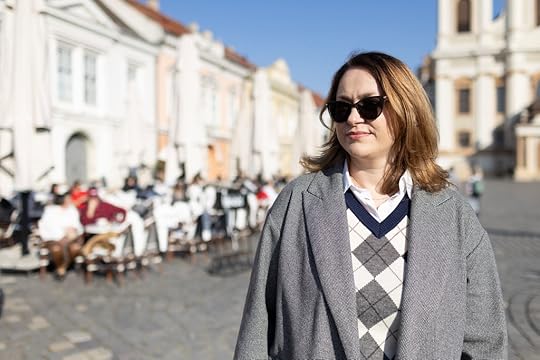


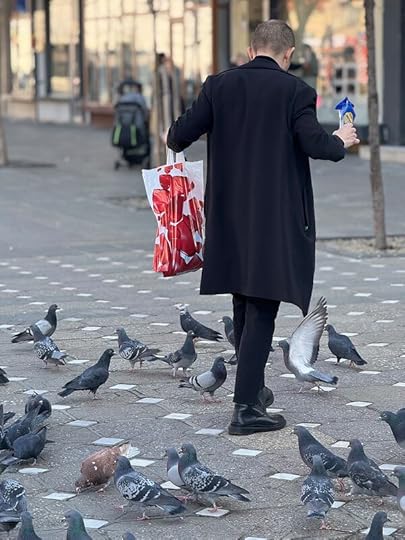

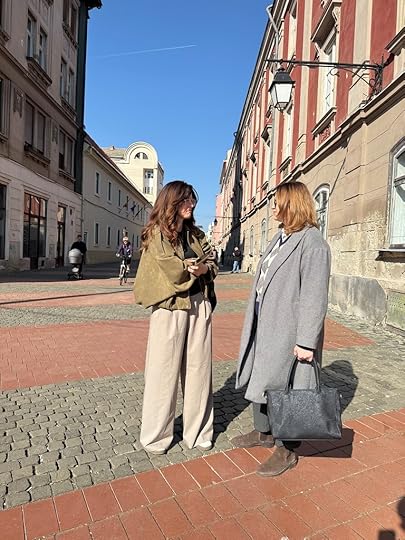
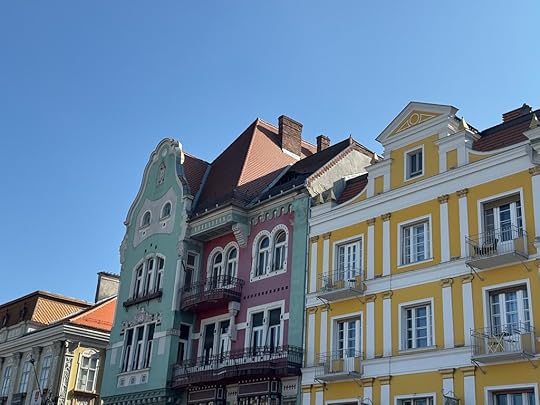
While there may be those who argue that the critical flaw of contemporary culture is compassion, the reality is, if our compassion shrivels, it’s proof that our culture is dying, and there’s nothing left within us that can reproduce and grow any thriving life.
The absence of compassion is proof of the presence of a contagious culture of death.
“The absence of compassion is proof of the presence of a contagious culture of death.“
“Elena, why do you think Romania, the Romanian church, has been open to help Ukranian refugees?” I ask Elena as we sit down on a park bench in Liberty Square. While Romania and Ukraine share nearly a 400 mile border on one side, Ukraine and Russia are warring along more than a 1000 long mile border on the other side. A flock of winging pigeons settle down across the square, eating the crumbs a man quietly feeds them from a crumpled bag.
“Why have we so cared about the Ukrainian refugees? Because we are sensitive to pain. Because we’ve been under the occupations of the Ottoman Empire, of the Russian troops who didn’t want to leave Romania after World War II, and we know what they can bring… We have come through this hardship with communism and Russia, and it’s very important not to forget this. It’s part of the culture of Romania, of the Romanian church, to see how it is for Ukranians and really be sensitive to their pain — we know what it’s like, and we know it could be us.”
The man with the bread crumbs kneels down closer to the pigeons.
When you remember pain, you remember how to be compassionate to others in theirs. But if we grow distant and desensitized to pain, we dehumanize others in theirs — and become less than human ourselves.
“There’s a direct relationship between a person’s grasp and experience of God’s grace, and his or her heart for the poor and marginalized,” is the line of connection that the theologian Timothy Keller drew. (Is 58:5-7; 1 Jn 3:16-18)
The deeper you’ve tasted of grace, the greater your heart enlarges for those on the margins.
“The deeper you’ve tasted of grace, the greater your heart enlarges for those on the margins“
The more you grasp God’s grace, the greater you will reach to pass on that grace.
Those who’ve tasted amazing grace, will go to amazing lengths to ensure others taste the grace of bread.
Elena shares with me the ways her church family have reached out and welcomed, served, and supported Ukrainians since the Russian invasion 3 years ago, the free Romanian language classes that a colleague’s offered to Ukrainians, the committed assistance with job searches, securing accommodations, processing trauma, and the long-term work of integrating into society.
“We’re all called to do the work of helping,” Elena’s voice is steady, sure.
And I’m nodding.
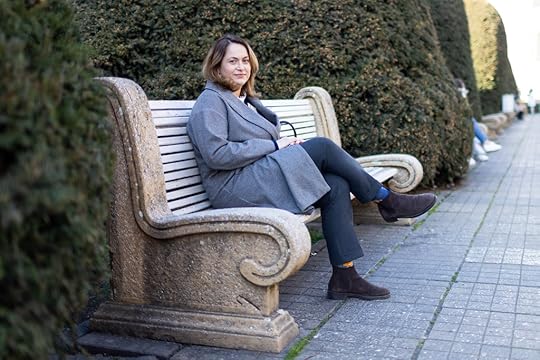

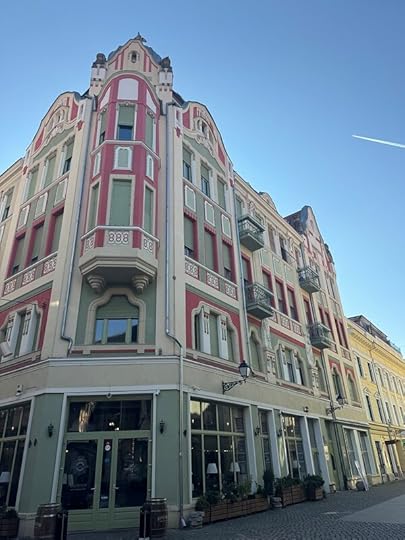
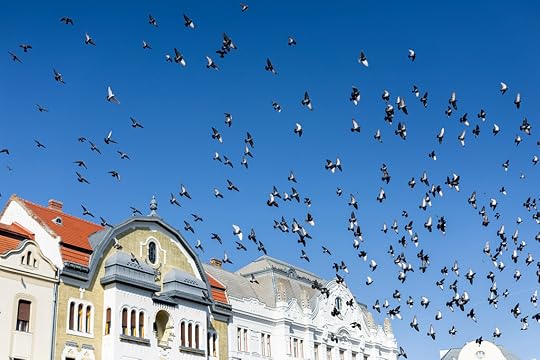
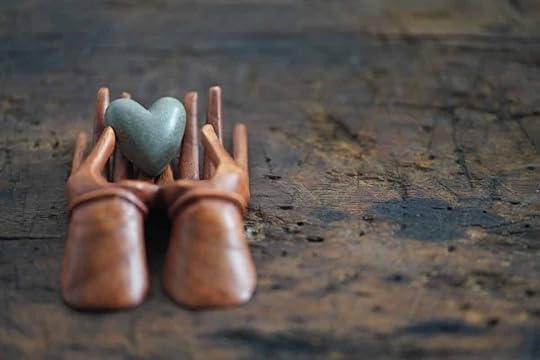

In a fractured and polarizing world, our work is not to be on missions of retribution, but to be ministers of reconciliation, not to cause any more suffering to the oppressed, but to serve in any way we can, because that’s always the call when you’ve been blessed.
“If we turn from compassion, this holy call to co-suffer with others, our own hearts suffer, our witness suffers, our world suffers, and the gospel of Jesus Christ suffers.“
It’s those who focus on self first who experience the hardening of their own arteries in any heart of compassion, which leads to heart failure, which is the ultimate life failure.
If we turn from compassion, this holy call to co-suffer with others, our own hearts suffer, our witness suffers, our world suffers, and the gospel of Jesus Christ suffers.
The strong win little that matters, and lose any real strength that ultimately matters, when they have little compassion for those in need.
A father and his little girl linger near the man feeding the pigeons, watching too. And I think of how, as every child is intimately sustained in a womb, with the mother not expecting anything in return, so biblical compassion — rakhum, womb-like compassion — is more than mere feeling, it’s a deep intimate connection with others that stirs us toward giving and sacrificing in ways that sustain hope — both theirs and ours.
Elena and I both smile, watching along with the father and child, as the kneeling man feeds another handful to the pigeons.
This a world of heartache, and yet there is the relief of the sweet taste of compassion.
Then, in a moment, the flock of pigeons take to the air — and hope rises on the wings of compassion.
Soaring birds fill the sky, in these final days Lent.
Our freedom in Christ is the freedom to feel the compassion of Christ.

You aren’t alone. God knows what it feels like to be where you are, where you have been. God Himself knows how hard this broken planet is―He’s walked where you’ve walked. But out of those hard, dusty roads emerges a way into the exhilarating life you’ve longed to fully experience.
This is the truest story in the whole universe: God is the only One who has ever loved you to death and came to resurrect you into the fullest life you always hoped for.
Embark on a 40-day spiritual pilgrimage following the entire life of Jesus through the Gospel of John — a 40-day pilgrimage to move you from barely getting through―to passionately living the fullest life.
Ann Voskamp's Blog
- Ann Voskamp's profile
- 1368 followers



